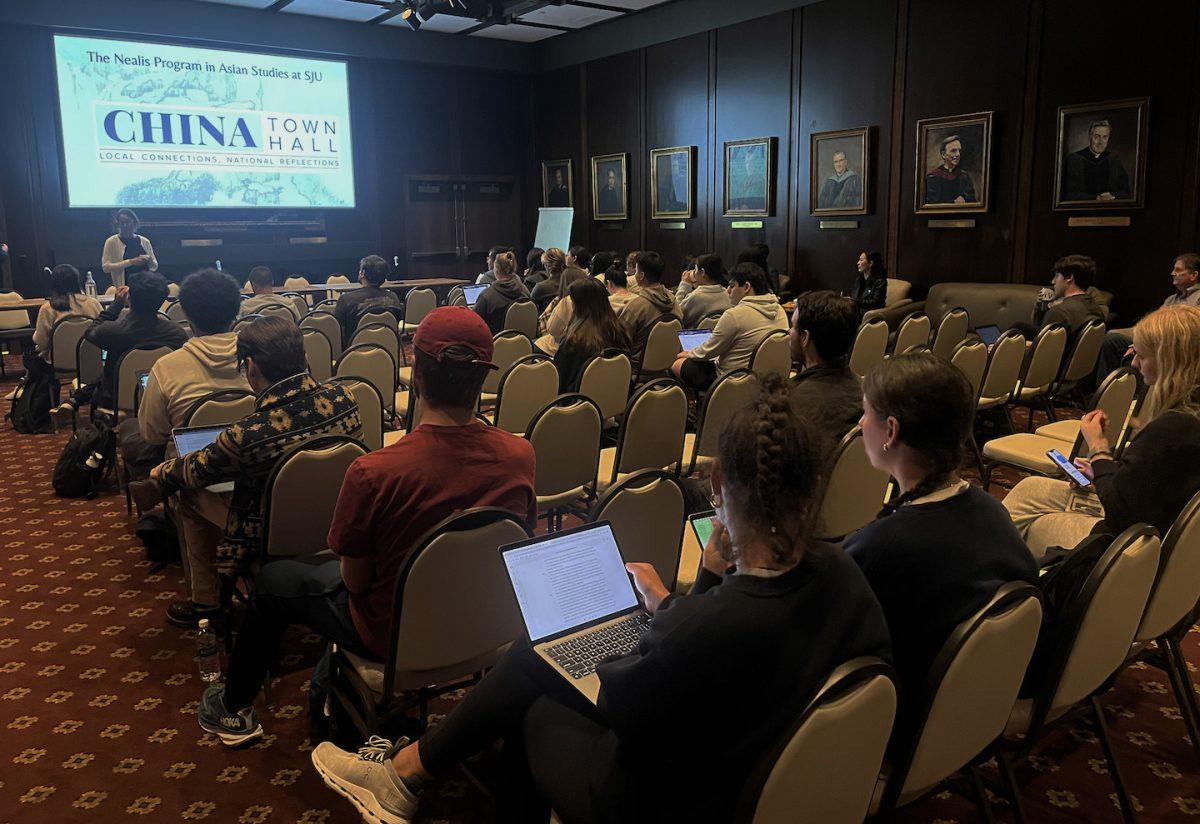The Asian Studies department hosted its 12th annual China Town Hall program Oct. 11. The event was sponsored by the Nealis Program in Asian Studies and featured Nicholas Burns, U.S. ambassador to China, who was interviewed during a livestream by Steve Orlins, president of the National Committee on U.S. China Relations.
Burns called China the biggest rival to the U.S.
“When we announced the sanctions a year ago on the sale of advanced semiconductors, we’re not doing this for commercial reasons to give an advantage to American companies,” Burns said. “We’re doing it for national security reasons. No government would ever sell its most advanced technology.”
The event provided an opportunity for students to learn more about the U.S.-Chinese relations and also featured St. Joe’s faculty who had expertise in Asian studies. James Carter, Ph.D., interim provost, said the current relationship between the U.S. and China is fraught.
“Right now both on the Chinese side and the American side, there’s a very apprehensive view of the other,” Carter said. “And that presents a lot of challenges to our ability to cooperate and try to build peaceful collaborative relationships.”
On the topic of normalizing relations between the two nations, Carter said the best way forward would be a grassroots effort.
“Right now, there’s such ingrained animosity toward China,” Carter said “Maybe it’s because it gives us a chance to deflect from our own problems.”
“Washington, D.C. is hopelessly polarized,” Carter added. “Our country is hopelessly polarized.”
The event gave some students a clearer understanding about the U.S.’s relationship with China. Davina Odeh ’24 said she was apprehensive about the relationship between the two nations.
“I learned that things might be rough for the next few years,” Odeh said. “I was a little discouraged by the rhetoric from this diplomat. It did seem like we’ve gone away from ‘we’re friendly’ mode to competitive mode.”
One of the faculty experts at the event, Amber Abbas, Ph.D., professor of history and director of the Nealis program, said the program benefits students by helping them to develop relationships in a globalized world.
“You’ve just listened to the China Town Hall talking about how important it is to develop linguistic and cultural tools that allow us to engage with people from China and other places in Asia,” Abbas said. “[The] 21st century has been called the Asian century.”
The Nealis Program is funded by an endowment from the Nealis family to the Asian studies department. The program allows students to study abroad and learn Asian languages in an attempt to build personal connections and relationships with people in Asia.
Odeh said the event helped her become a better student by allowing her to listen to different perspectives.
“I feel like sometimes the U.S. has a very U.S.-centric look wat the world,” Odeh said. “Getting information about other aspects of the world is important.”













































